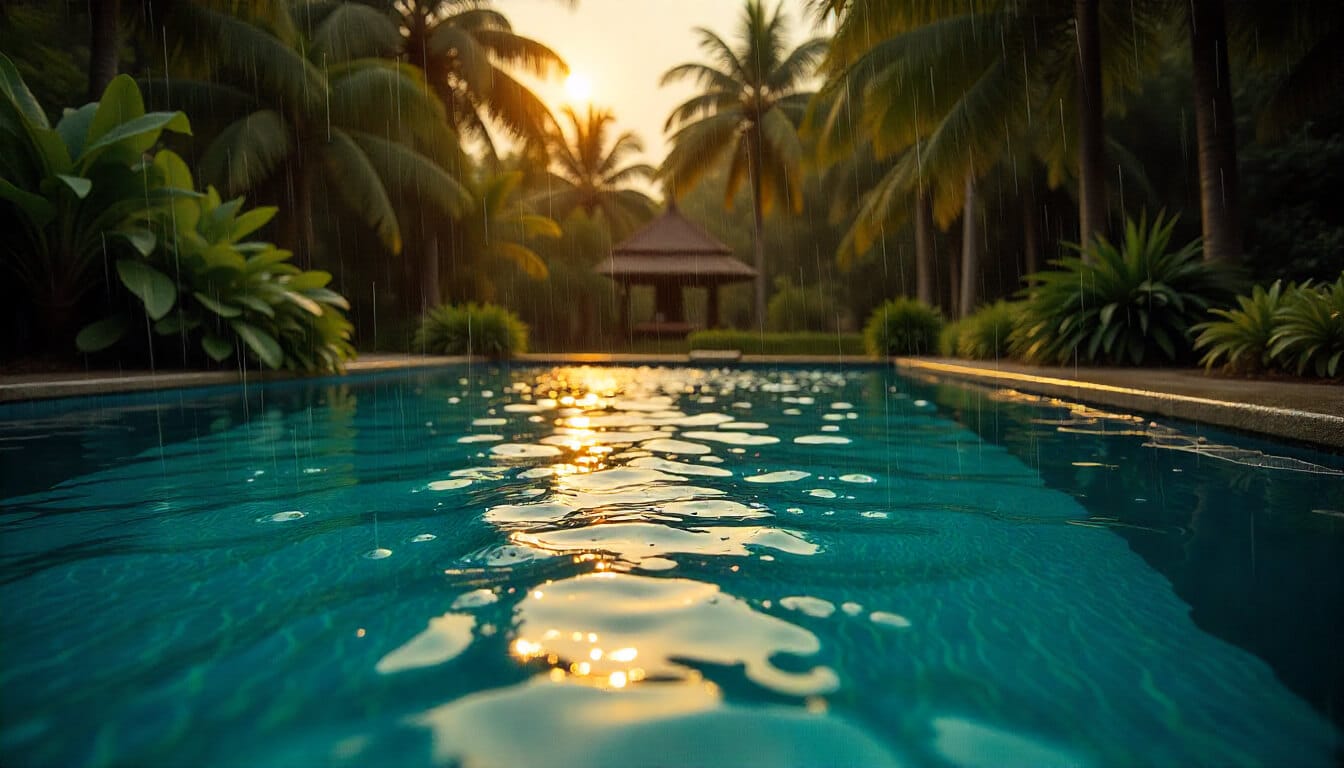How to Soften Pool Water: The 3 Best Methods

Is your once-sparkling pool now looking a bit cloudy? Do the walls and floor feel rough to the touch? You're likely dealing with one of the most common issues for pool owners: hard water. While frustrating, it’s a problem you can absolutely solve.
This guide will provide everything you need to know. We’ll start with a quick 3-step solution to soften your pool water today. Then, we’ll dive deeper to help you understand why your water became hard and, most importantly, how to prevent it from happening again.
The Quick Answer: How to Soften Your Pool Water Today
For those who want the immediate solution, here it is. The most effective and permanent way to soften pool water is by physically reducing the concentration of minerals through dilution.
The 3 Essential Steps:
- Test Your Water: Before you do anything, use a quality liquid test kit to confirm your pool’s hardness level. Crucially, you must also test your tap water to ensure it's significantly softer than your pool water.
- Drain & Refill: Safely drain about 25% of your pool's water and then begin refilling it with fresh water from your hose.
- Circulate & Rebalance: Once refilled, run your pump for at least 8-12 hours to thoroughly mix the old and new water. Finally, perform a full chemical test and rebalance all your levels, including total alkalinity and pH.
Diagnosing Your Pool: What Causes Hard Water
Now that you have the solution, let's explore the details. Understanding the problem is the first step toward preventing it.
The Key Symptoms of Hard Pool Water
"Hard water" simply means there is a high concentration of dissolved minerals, primarily calcium. When these levels get too high (typically over 400 PPM), you’ll start to see tell-tale signs:
- Cloudy or Milky Water: Excess calcium particles get suspended in the water, making it look hazy.
- Calcium Scaling: You’ll notice white, crusty deposits on your pool surfaces and tile line. This scale can also build up inside your pump, filter, and heater, reducing their efficiency and lifespan.
- Skin & Eye Irritation: The high mineral content can make the water feel less pleasant for swimmers.

What Causes Hard Water in a Pool?
Hard water doesn't just appear out of nowhere. It's typically caused by one of these three factors:
- Source Water: If you live in a region with hard tap water, you’re adding minerals to your pool every time you top it off.
- Evaporation: When water evaporates under the sun, only the pure water leaves. All the minerals get left behind, becoming more and more concentrated over time.
- Chemicals: If you frequently use granular "shock" that contains calcium hypochlorite (Cal-Hypo), you are adding a small amount of calcium with every dose, which accumulates over the season.
How to Test Your Water Accurately
While test strips are convenient for daily chlorine checks, solving a hardness problem requires precision. A liquid titration test kit is the gold standard. These kits allow you to measure the exact parts per million (PPM) of calcium hardness, giving you the accurate data you need to make the right decision.
All 3 Methods for Softening Pool Water
While dilution is the best solution, it’s essential to understand all the options available.
Method 1: Partial Drain & Refill (The Best Option)
This is the most direct way to remove minerals and truly soften your water physically. When performing this task, remember one critical rule: Never completely drain your pool.
The weight of the water helps hold the pool structure in place. Draining it entirely can cause catastrophic damage, from a vinyl liner shrinking to a fiberglass or concrete shell literally popping out of the ground.
Method 2: Using Chemical Solutions
You'll see many products at the pool store designed to combat hard water. It's important to know what they actually do.
- Flocculants & Clarifiers: These chemicals can help clear up cloudy water by clumping together suspended particles so they can be filtered or vacuumed out. However, they do not bind to dissolved calcium and will not lower your overall hardness reading.
- Sequestering Agents ("Stain & Scale"): This is the most common chemical treatment. These products don't remove calcium or soften water. Instead, they chemically bind to the mineral ions, preventing them from turning into scale on your swimming pool tile. This is an effective management strategy but requires regular doses to remain effective.
Method 3: Reverse Osmosis (RO) Filtration
This is a professional-grade solution where a truck-mounted filtration system processes your pool water on-site. It pushes water through a delicate membrane that strips out calcium, salts, and other impurities, returning purified water to the pool. It’s a fantastic option for regions with tough source water or for pool owners who cannot drain their pool for any reason.
How to Prevent Hard Water from Coming Back
After you’ve softened your water, you want it to stay that way. A proactive strategy is the key.
- Choose a Non-Calcium-Based Chlorine Shock: When buying shock, check the label. Opting for liquid chlorine or a non-calcium granular shock will prevent the addition of unnecessary minerals. Learning about the differences between pool sanitizers can help you make an informed choice.
- Use a Hose Pre-Filter for Top-Offs: This simple, disposable gadget attaches to your garden hose and removes a significant amount of minerals from the water before it even enters your pool.
- Manage Evaporation with a Pool Cover: A solar pool cover is the most effective way to reduce evaporation. Less evaporation means less water to replace and a slower rate of mineral concentration.
The Final Piece of the Puzzle: Total Pool Health
With your water chemistry fixed and a prevention plan in place, there's one final piece to achieving a truly effortless pool experience. We've established that balanced water chemistry is Pillar 1 of a healthy pool. The second, equally important pillar is consistent physical cleaning.
This is where smart automation comes in. A powerful robotic cleaner automates this second pillar. By constantly removing physical debris like leaves, dirt, and bugs, it reduces the strain on your chemicals and filter, ensuring the clear, soft water you worked hard for stays that way with minimal effort, allowing you to spend less time maintaining your pool and more time enjoying it.
Frequently Asked Questions
What about "natural" ways to soften pool water?
You may read online about using vinegar or other acids. This is a myth and should be avoided. The amount needed would be enormous, and it would drastically throw off your pool's pH and alkalinity, creating a bigger problem than the one you started with.
Can my pool water be too soft?
Yes. If calcium hardness drops below 150 PPM, the water becomes aggressive and corrosive. It will try to find the calcium it needs by leaching it from your pool's plaster, grout, and even metal equipment, causing permanent damage. Balance is always the goal.
What's the difference between hard water and high alkalinity?
They are often confused, but are two different things. Calcium hardness measures dissolved calcium. Total Alkalinity measures the water's ability to resist changes in pH. Both are crucial for water balance, but they must be tested and adjusted separately.

